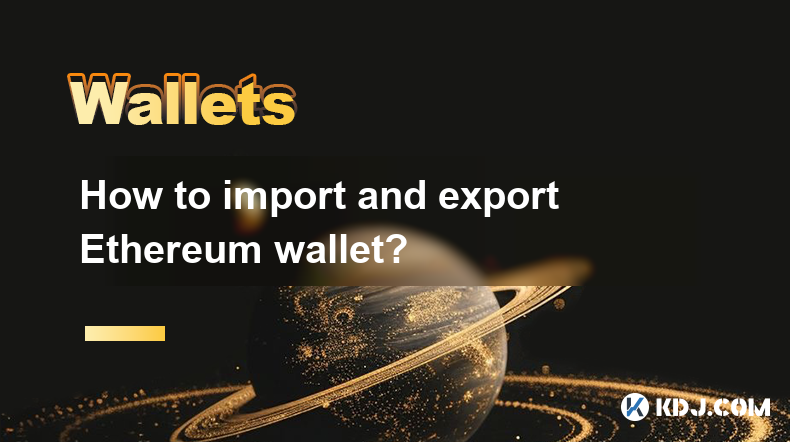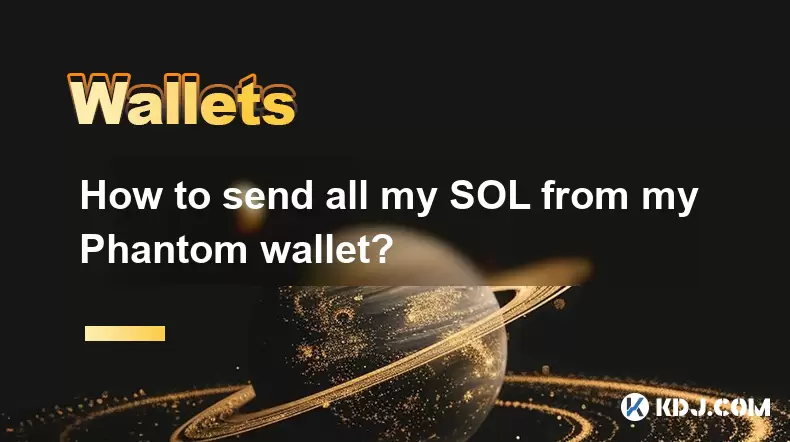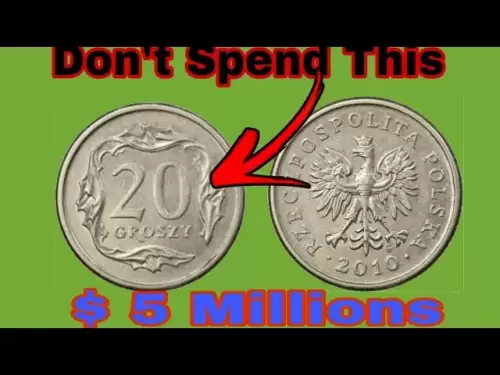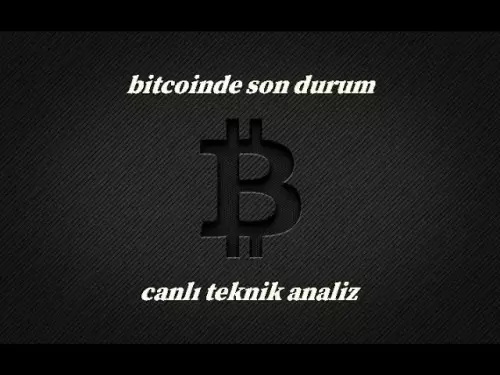-
 Bitcoin
Bitcoin $108,562.4295
0.46% -
 Ethereum
Ethereum $2,533.9553
1.52% -
 Tether USDt
Tether USDt $1.0002
-0.01% -
 XRP
XRP $2.2542
2.23% -
 BNB
BNB $662.4567
1.48% -
 Solana
Solana $151.4114
3.48% -
 USDC
USDC $0.9999
0.00% -
 TRON
TRON $0.2860
0.91% -
 Dogecoin
Dogecoin $0.1685
3.72% -
 Cardano
Cardano $0.5809
1.63% -
 Hyperliquid
Hyperliquid $39.2916
1.85% -
 Sui
Sui $2.8874
0.85% -
 Bitcoin Cash
Bitcoin Cash $496.5801
2.72% -
 Chainlink
Chainlink $13.3582
2.48% -
 UNUS SED LEO
UNUS SED LEO $9.0279
0.07% -
 Avalanche
Avalanche $18.0773
2.30% -
 Stellar
Stellar $0.2426
3.05% -
 Toncoin
Toncoin $2.9086
6.01% -
 Shiba Inu
Shiba Inu $0.0...01170
2.97% -
 Hedera
Hedera $0.1587
3.47% -
 Litecoin
Litecoin $87.4596
1.13% -
 Monero
Monero $317.0425
0.73% -
 Polkadot
Polkadot $3.3778
1.90% -
 Dai
Dai $0.9999
-0.01% -
 Ethena USDe
Ethena USDe $1.0001
-0.01% -
 Bitget Token
Bitget Token $4.4095
0.63% -
 Uniswap
Uniswap $7.3593
6.80% -
 Pepe
Pepe $0.0...09910
3.64% -
 Aave
Aave $274.7388
2.68% -
 Pi
Pi $0.4607
0.48%
How to import and export Ethereum wallet?
Securely managing your Ethereum wallet involves understanding and protecting your private key or seed phrase; losing either means permanent loss of funds. Exporting usually focuses on backing up this information, while importing uses it to access your funds on a new device.
Mar 23, 2025 at 01:00 am

How to Import and Export Ethereum Wallet?
Importing and exporting your Ethereum wallet is crucial for accessing your funds across different devices and platforms. This process involves handling private keys, which are essentially passwords granting access to your cryptocurrency. Mishandling these keys can lead to irreversible loss of funds, so utmost caution is required. This guide outlines the safe and effective methods for both importing and exporting your Ethereum wallet data.
Understanding Private Keys and Seed Phrases
Before diving into the import/export process, understanding the fundamental security concepts is essential. Your Ethereum wallet's private key is a unique cryptographic string, absolutely crucial for accessing your funds. Never share this key with anyone. A seed phrase (also known as a mnemonic phrase) is a list of words that generates your private key. It's equally crucial and should be kept secure. Losing either will result in the permanent loss of your Ethereum.
Methods for Exporting Your Ethereum Wallet
The method for exporting your wallet depends entirely on the type of wallet you're using. There isn't a universal "export" button. Instead, you'll typically focus on securing and backing up your private key or seed phrase.
- Hardware Wallets (Ledger, Trezor): These wallets generally don't offer a direct "export" function. Your seed phrase is generated during setup and should be written down and stored securely offline. Never store it digitally.
- Software Wallets (MetaMask, Trust Wallet): These wallets often allow you to export your private key, usually found within the settings menu. However, many wallets are moving away from this practice due to security concerns. The safer approach is to securely back up your seed phrase. This is usually available within the settings or security section of the application.
- Paper Wallets: This involves generating a private key and public address offline and then printing them on paper. This method provides strong offline security but carries risks if the paper is lost or damaged.
- Keystore Files (JSON): Some wallets utilize keystore files, which contain encrypted versions of your private key. These files should be stored securely and protected with a strong password.
Methods for Importing Your Ethereum Wallet
Importing an Ethereum wallet involves using your private key or seed phrase to access your funds on a new device or wallet.
- Using a Seed Phrase: Most wallets provide an option to "import" or "restore" a wallet from a seed phrase. This is the safest method. Simply follow the on-screen instructions provided by your chosen wallet.
- Using a Private Key: Some wallets allow you to import using a private key. This method is less secure as the private key is directly exposed during the import process. Use extreme caution.
- Using a Keystore File: Similar to using a seed phrase, some wallets support importing wallets from keystore files (.json). This process typically requires providing the associated password.
Security Best Practices
- Never share your private key or seed phrase with anyone.
- Store your seed phrase offline, ideally written on multiple pieces of paper and stored in separate, secure locations.
- Use a strong, unique password for your wallet and any associated accounts.
- Regularly back up your wallet and seed phrase.
- Be wary of phishing scams. Legitimate wallets will never ask for your private key or seed phrase.
- Consider using a hardware wallet for enhanced security.
- Enable two-factor authentication (2FA) whenever possible.
Frequently Asked Questions
Q: What happens if I lose my seed phrase?
A: If you lose your seed phrase, you will lose access to your Ethereum and any funds held within that wallet. There is no way to recover it.
Q: Can I import my Ethereum wallet into any wallet application?
A: Not all wallets support the same import methods. Some may support seed phrases, others private keys, and some keystore files. Check the documentation of your chosen wallet.
Q: Is exporting my private key safer than exporting my seed phrase?
A: No, exporting your seed phrase is generally considered safer as it's less likely to be compromised during the transfer process.
Q: How often should I back up my wallet?
A: Backing up your wallet and seed phrase should be done immediately after setting up your wallet, and regularly thereafter (at least every few months).
Q: What is the best way to store my seed phrase?
A: The best method is to write it down on multiple pieces of paper and store them in separate, secure, and physically different locations. Never store it digitally.
Q: What should I do if I suspect my wallet has been compromised?
A: Immediately change your passwords, contact your wallet provider's support, and monitor your accounts for any unauthorized activity. Consider freezing your accounts if you believe funds have been stolen.
Q: Are there any fees associated with importing or exporting my Ethereum wallet?
A: No, importing or exporting your wallet doesn't typically incur any fees. However, transactions made using your wallet are subject to network fees (gas fees).
Q: Can I use my seed phrase to access my funds on different devices?
A: Yes, your seed phrase is a universal key to access your funds across different devices and wallets. However, ensure the receiving wallet supports the import of seed phrases.
Q: What is the difference between a private key and a public key?
A: Your private key is your secret key, used to authorize transactions. Your public key, on the other hand, is your Ethereum address – it's the address others use to send you funds. Never share your private key.
Q: What should I do if I forget my wallet password?
A: Recovery methods vary depending on your wallet type. Some wallets allow password resets, others may require your seed phrase. Consult your wallet's documentation for specific instructions. If you have lost your seed phrase, there is no recovery method.
Disclaimer:info@kdj.com
The information provided is not trading advice. kdj.com does not assume any responsibility for any investments made based on the information provided in this article. Cryptocurrencies are highly volatile and it is highly recommended that you invest with caution after thorough research!
If you believe that the content used on this website infringes your copyright, please contact us immediately (info@kdj.com) and we will delete it promptly.
- Drake, Bitcoin, and Mainstream Music: A New Era?
- 2025-07-07 12:30:12
- Meme Coins, ROI Potential, 2025 Selection: What's Hot and What's Not?
- 2025-07-07 12:30:12
- Bitcoin, Ethereum, and Dogecoin: Navigating the Crypto Landscape in a Wild Week
- 2025-07-07 12:50:11
- Meme Coin Mania: Explosive Picks and Top Buys in 2025
- 2025-07-07 12:50:11
- Bitcoin, Ethereum, and the Cryptocurrency Market: Riding the Wave of Innovation
- 2025-07-07 12:55:12
- Elon Musk, Bitcoin, and Crypto News: A 2025 Perspective
- 2025-07-07 13:10:12
Related knowledge

How to cancel a pending transaction in Phantom wallet?
Jul 03,2025 at 07:21pm
Understanding Pending Transactions in Phantom WalletA pending transaction in the Phantom wallet occurs when a user initiates a transfer or interaction with the Solana blockchain, but it hasn't yet been confirmed by the network. This can happen due to various reasons such as low transaction fees, network congestion, or incorrect gas settings. It's import...

How to see the estimated value of my tokens in Phantom wallet?
Jul 04,2025 at 12:21am
What is Phantom Wallet?Phantom wallet is one of the most popular cryptocurrency wallets designed for the Solana blockchain. It allows users to store, send, receive, and manage various tokens built on Solana, including SPL tokens and NFTs. The wallet offers a user-friendly interface, making it accessible for both beginners and advanced users in the crypt...

How to lock my Phantom wallet extension?
Jul 03,2025 at 11:14am
What Is the Phantom Wallet and Why Lock It?The Phantom wallet is a popular non-custodial cryptocurrency wallet designed for interacting with the Solana blockchain. Supporting both browser extensions and mobile apps, Phantom allows users to store, send, receive, and stake SOL tokens, as well as interact with decentralized applications (dApps). Securing y...

Does Phantom wallet offer two-factor authentication (2FA)?
Jul 03,2025 at 09:00am
Understanding Phantom Wallet and Its Security FeaturesPhantom wallet is a widely used non-custodial cryptocurrency wallet that supports the Solana blockchain. It allows users to store, send, receive, and interact with decentralized applications (dApps) seamlessly. As security is a top priority for any crypto wallet user, security features like two-facto...

How to send all my SOL from my Phantom wallet?
Jul 06,2025 at 10:00am
Preparing to Send SOL from Your Phantom WalletBefore initiating any transaction, it is crucial to ensure that your Phantom wallet is fully set up and connected to the correct network. Phantom supports multiple networks, but for sending SOL, you must be on the Solana blockchain. Confirm this by checking the network indicator in the top-right corner of th...

What is "rent" on Solana and how does it affect my Phantom wallet?
Jul 02,2025 at 08:35pm
Understanding 'Rent' on SolanaIn the context of Solana, the term 'rent' refers to a storage fee that users pay for maintaining data on the blockchain. Unlike Ethereum, where storage costs are paid once via gas fees during contract deployment, Solana implements a recurring cost model to ensure efficient usage of network resources. This means that any acc...

How to cancel a pending transaction in Phantom wallet?
Jul 03,2025 at 07:21pm
Understanding Pending Transactions in Phantom WalletA pending transaction in the Phantom wallet occurs when a user initiates a transfer or interaction with the Solana blockchain, but it hasn't yet been confirmed by the network. This can happen due to various reasons such as low transaction fees, network congestion, or incorrect gas settings. It's import...

How to see the estimated value of my tokens in Phantom wallet?
Jul 04,2025 at 12:21am
What is Phantom Wallet?Phantom wallet is one of the most popular cryptocurrency wallets designed for the Solana blockchain. It allows users to store, send, receive, and manage various tokens built on Solana, including SPL tokens and NFTs. The wallet offers a user-friendly interface, making it accessible for both beginners and advanced users in the crypt...

How to lock my Phantom wallet extension?
Jul 03,2025 at 11:14am
What Is the Phantom Wallet and Why Lock It?The Phantom wallet is a popular non-custodial cryptocurrency wallet designed for interacting with the Solana blockchain. Supporting both browser extensions and mobile apps, Phantom allows users to store, send, receive, and stake SOL tokens, as well as interact with decentralized applications (dApps). Securing y...

Does Phantom wallet offer two-factor authentication (2FA)?
Jul 03,2025 at 09:00am
Understanding Phantom Wallet and Its Security FeaturesPhantom wallet is a widely used non-custodial cryptocurrency wallet that supports the Solana blockchain. It allows users to store, send, receive, and interact with decentralized applications (dApps) seamlessly. As security is a top priority for any crypto wallet user, security features like two-facto...

How to send all my SOL from my Phantom wallet?
Jul 06,2025 at 10:00am
Preparing to Send SOL from Your Phantom WalletBefore initiating any transaction, it is crucial to ensure that your Phantom wallet is fully set up and connected to the correct network. Phantom supports multiple networks, but for sending SOL, you must be on the Solana blockchain. Confirm this by checking the network indicator in the top-right corner of th...

What is "rent" on Solana and how does it affect my Phantom wallet?
Jul 02,2025 at 08:35pm
Understanding 'Rent' on SolanaIn the context of Solana, the term 'rent' refers to a storage fee that users pay for maintaining data on the blockchain. Unlike Ethereum, where storage costs are paid once via gas fees during contract deployment, Solana implements a recurring cost model to ensure efficient usage of network resources. This means that any acc...
See all articles

























































































